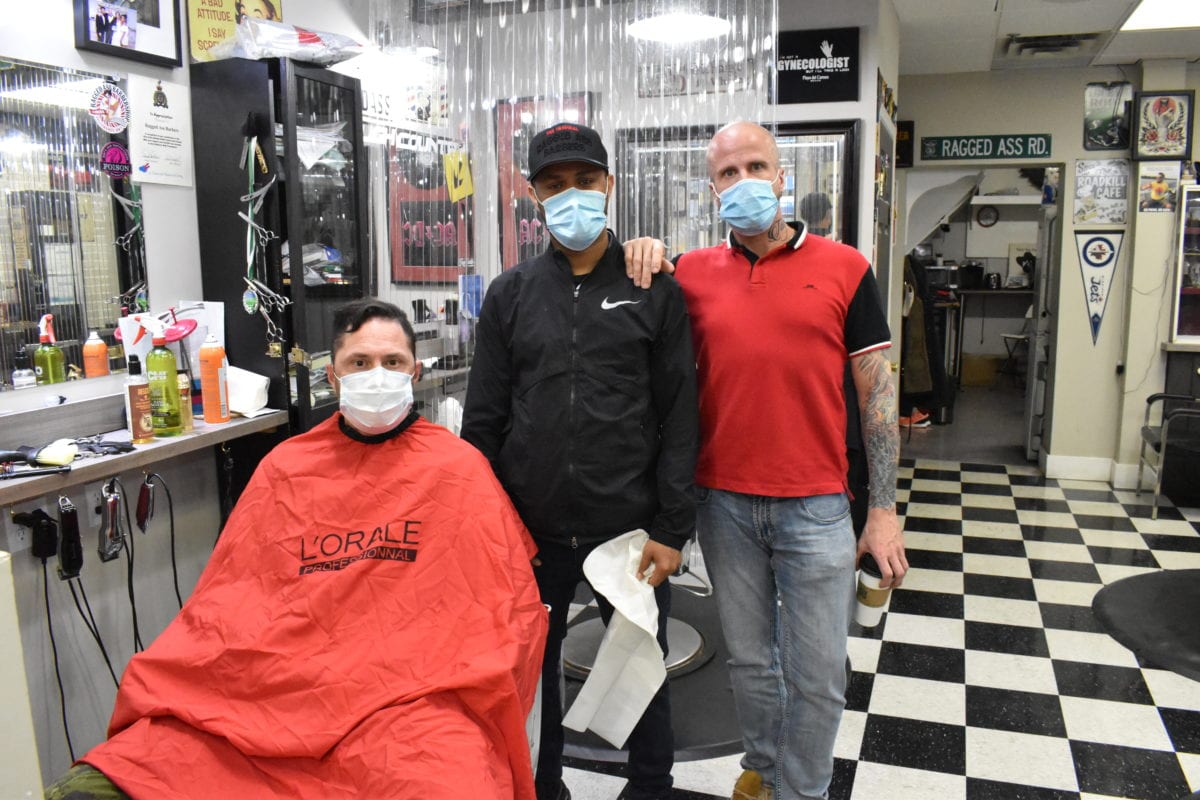Experiencing a pandemic during his 10th year in business might seem like an awkward milestone, but James McGaughey is still working and glad to see his customers.
The co-owner of Ragged Ass Barbers has been with the YK Centre Mall barber shop since he helped open it in 2010, and its 10th year has been a tough one.
The shop closed on March 15, just days before the NWT’s first case of Covid-19 was confirmed. Business didn’t resume until the end of May.

“We had no income,” said co-owner Aron Abadi.
They applied for a $40,000 loan from the federal government’s Canada Emergency Business Account, but didn’t quality. The only financial help they received during the months of closure was assistance from the Canadian Northern Economic Development Agency (CanNor), which covered their rental costs.
“But the amount of work that we had to do to get it,” McGaughey said, trailing off and laughing. “We’re still doing paperwork for that stupid thing. CanNor… kept the business from sinking but there was no money for us.”
Once they were able to reopen, June was “insanely busy” because so many people needed haircuts after months of hair care shops being closed.
With the sharp rise in customer traffic, Ragged Ass’s four barbers were using up a lot of personal protective equipment. But the CanNor assistance didn’t cover those expenses, leaving Abadi and McGaughey to pay $2,000 of their own money just for face masks in their first month of reopening.
“We burn through about 1,000 masks every week,” McGaughey said, gesturing to a package of disposable masks.
The June rush didn’t last, and the owners estimate customer numbers have been down by 20 to 25 per cent compared to the same period last year.
“The worst thing about (Covid) is the fear it’s instilled in everybody. It’s created a madness in the population here,” McGaughey said. “A lot of people are scared. There are guys that are coming in now who haven’t been here in six months. There’s guys that were coming in (regularly) and hadn’t had a hair cut since all this started. Usually these guys come in every two weeks. It’s affected our business.”
Physical distancing protocols have also limited customers, who used to be able to fill all of the seats in the shop while waiting for their haircut but who now would rather not wait in the mall’s hallways.
“We have to work more hours to see more customers,” said Abadi.
And whenever an employee leaves the territory, which McGaughey does occasionally when he goes to Edmonton to buy items for the barber shop, other staff have to fill in while the returnee self-isolates for two weeks.
McGaughey explained that he wishes a different kind of rapid testing process could do away with the self-isolation rule, and adds that “it’s tough doing business in the NWT because most of the population are government employees (and) there isn’t much care for the average businessperson.”
With a second wave of Covid in full swing in southern Canada, and signs that a second wave is on the doorstep of the NWT, Abadi and McGaughey only hope that whatever happens, they don’t have to close again.
“The only thing that we’re thankful for is our regular customers,” McGaughey said.

